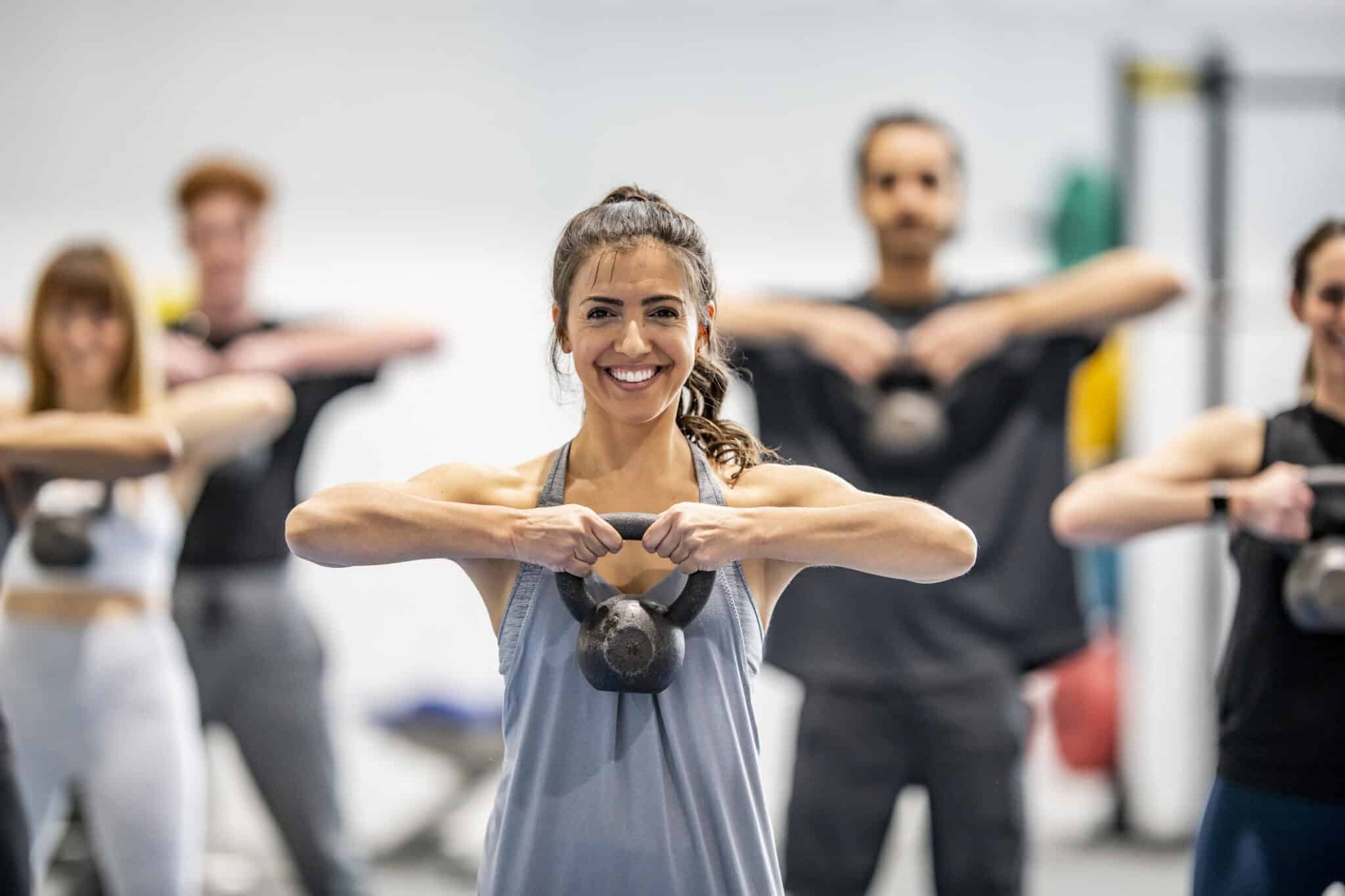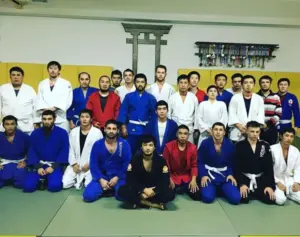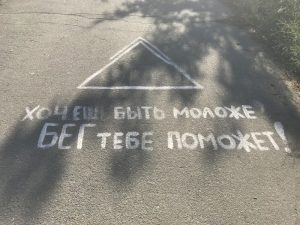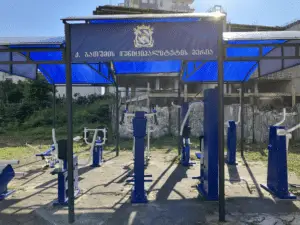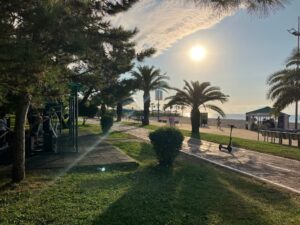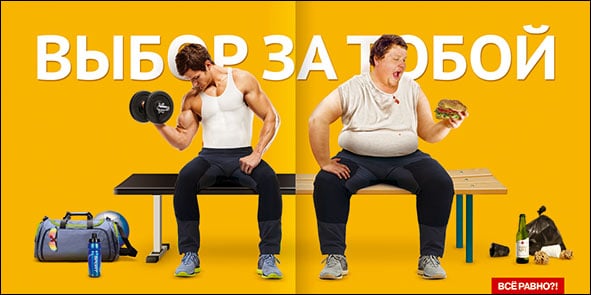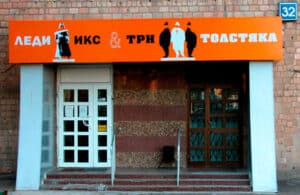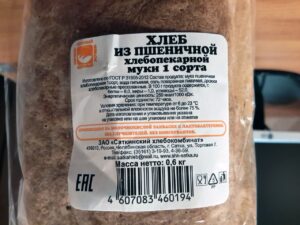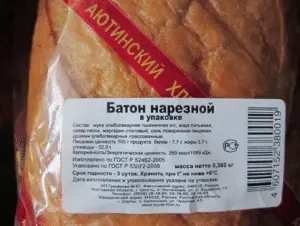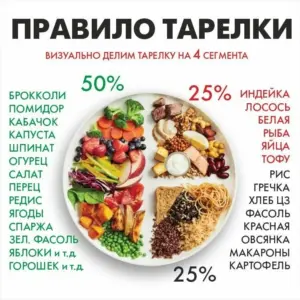In recent years, gym and fitness options have proliferated across Eurasia. Travelers interested in maintaining their fitness regimen while abroad – whether they are visiting Latvia, Georgia, or even Kyrgyzstan, should have no problem doing so. It does help to know a bit about these gyms and it pays to know some of the Russian vocabulary involved in using these gyms. As students on SRAS programs abroad can tell you, Russian is still a strong lingua franca across this region.
This bilingual resource hopes to build your vocabulary skills as well as provide you with a window into concepts of health and fitness as viewed from Russian-speaking societies.
The Language of Gyms in Russian
In Russian, a gym is most properly referred to as тренажерный зал (fitness center). It can also be referred to colloquially as a “качалка.” The slang word is derived from the Russian verb “качать” (to swing). “Качать” itself can also colloquially mean “to pump” or “to exercise” – as in качать мускулы (to pump up (one’s) muscles).
Gyms are today fairly well developed across Eurasia. Most gyms in most major cities will have Russian-speaking (or even English-speaking) staff. So, you should be able to use one of those two languages there, even if you don’t know the local language.
There is not, however, an equivalent of Planet Fitness with massively discounted rates and many students are somewhat surprised that they end up paying more for the gym abroad then they do at home, as many other expenses (such as food and entertainment) tend to be much lower.
A gym с приемлемыми ценами (with affordable prices) can be fairly easily found, however, если вы знаете, какие вопросы задавать (if you know what questions to ask).
Many gyms will advertise primarily долгосрочные абонементы (long-term memberships) such as a годовой абонемент (year-long membership) or полугодовой абонемент (half-year membership). However, many will have options for monthly memberships if you ask.
Thus, as a visiting foreigner, if you decide to оформить абонемент в тренажерный зал (sign up for a gym), you should know how to ask “Есть абонементы на месяц?” (Do you have monthly memberships?)
You should also be able to ask and understand что входит в абонемент в тренажерный зал (what is included with the gym membership). Gyms will often have a бассейн (swimming pool), турецкая баня (a Turkish bath), финская сауна (a Finnish sauna), зал боевых искусств (a martial arts gym), студия йоги и пилатеса (a yoga and Pilates studio), and зал групповых программ (a room for group workout sessions).
These might be available and included in your membership, or they might not. You might also be offered одно бесплатное занятие с персональным тренером (one free training session with a personal instructor). Sometimes personal instructors will speak English, but generally if you agree to this, you should быть готовым к тренировке языковых навыков (be ready to exercise your language skills)! You might also need to be ready to repeatedly отказаться от предложения подписаться на несколько тренингов за дополнительную плату (turn down a sales pitch for signing up for multiple training sessions at extra cost).
If you are looking for lower costs, keep in mind that smaller gyms, especially those located in спальный район (a residential neighborhood), are often more affordable than those in центр города (the city center). They are also less likely to have extra facilities such as a бассейн (swimming pool) or сауна (sauna).
You might also simply ask, “У вас есть скидки/Вы предлагаете скидки?” (Do you have any discounts?) Some gyms will offer студенческие скидки (student discounts) or even групповые скидки (group discounts) if you sign up with friends – this can be especially useful for students arriving for a short-term program who can sign up together. Many gyms offer скидки в дневное время (daytime discounts) if you can limit your gym visits to daytime hours – when most people are in offices rather than at the gym.
If you are interested in extra services, you might ask, for example, “За какие групповые занятия нужно платить отдельно?” (Which group classes cost extra?) Such extra sessions can include бокс, боевые искусства, йога, зумба, кардио классы, или даже групповые аква-программы (boxing, martial arts, yoga, zumba, cardio classes, or even group aquatic training).
Many facilities will also offer эстрадные танцы, a broad term in Russian that can refer to sport dance or even some folk dancing. Looking for уроки народных танцев (folk dancing lessons) can be a great way to keep fit and meet locals while immersing yourself in their culture.
Another good question to ask is: “‘When is the gym open?’ Какие часы работы спортзала?“. Most gyms operate from early morning till evening, and close at night.
There are two types of fitness equipment: кардиотренажеры и силовые тренажеры (cardio and strength training equipment). Кардиотренажеры include things such as such as беговые дорожки (treadmills), велотренажеры (stationary bikes), эллиптические тренажеры or орбитрек (elliptical trainers), степперы (stepping machines), and гребные тренажеры (rowing machines).
Силовые тренажеры include things such as тяжелоатлетические машины (weight-lifting machines), гантели литые (dumbbells) and разборные гантели (free weights).
You should keep in mind that all the societies in Eurasia use the metric system. Thus, when поднимать тяжести (lifting weights) you can convert the weight from kilos to pounds by multiplying the kilos by 2.2.
If you are looking for the absolute most affordable option – and will be travelling during the warmer months – you should be able to find a фитнес-центр на открытом воздухе (outdoor fitness center). Most major cities in Eurasia will have these in parks alongside children’s playgrounds. They feature mostly bodyweight machines that can take some getting used to, but are effective. And, of course, you can find маршруты для бега (jogging routes) just about everywhere that are free as well.
You can find more specific information for many SRAS locations at SRASstudents.org.
Keeping fit can be a great way to add to your study abroad experience as it can помогает сосредоточиться (help keep your mind focused), поддерживает здоровье организма (keeps your body healthy), and позволяет попасть в социальную атмосферу, где можно познакомиться с местными (puts you in a social atmosphere with locals to meet)!
Body Image in Russian
In both Russian literature and in modern Russian speech, being heavy is much less stigmatized than being too thin. In fact, Russian tends to assume that the heavy are living successful, happy lives. That said, this, like all чувствительные темы (sensitive topics), is not one to discuss in reference to someone within earshot unless you know the person very well and are confident you will not offend them with any words you choose.
Perhaps the most commonly used word in Russian for “to gain weight” is “полнеть.” This is roughly equivalent of “to fill out” in English, and can be used to refer to someone putting on muscle or fat. The verb’s adjective form: полный is usually defined as “containing in itself as much as it can or should hold.” It is often used to politely describe “full-bodied” or “broad” people or those с избыточным весом (with extra weight).
The verb “поправиться” comes from the root “прав,” which means “correct” or “true.” “Поправиться,” in addition to meaning “to gain weight,” also means “to be cured” or “to have improved health.”
The word широкая (wide) is often used to mean “generous” – as in “широкая масленица” (generous Maslenitsa), the Russian holiday that is marked by feasting on foods rich in dairy fat. One also finds the collocation “широкая русская душа” (generous Russian soul)– referring to the codes of hospitality that are supposed to be ingrained in Russian culture.
Even the blunt adjective жирный (fat), is also often as it can often mean “rich” as in “жирная земля” (rich earth).
Instances from Russian literature of weight gain being a positive thing are many. For example, Ivan Goncharov writes in his An Ordinary Story of a mother seeing her son recover from hard times as: “Она не могла нарадоваться, глядя, как Александр полнел” (She couldn’t help being happy, seeing how Aleksander was gaining weight).
Another, more extreme example can be seen in Fathers and Sons, where Turgenev writes: “Управляющий вдруг обленился и даже начал толстеть, как толстеет всякий русский человек, попавший на ‘вольные хлеба’” (The manager had suddenly grown lazy and even began to get fat, as does any Russian person after falling on the gravy train).
Of course, there are some negative references. Especially in revolutionary writing, the oppressive bourgeoisie were often depicted as being grossly obese. For instance, in the famous story Три Толстяка (Three Fat Men), the title characters are villains who imprison and kill the heroes. However, even here, the term is obviously soft as there is now a сеть магазинов больших размеров (chain of plus-sized shops) called Три Толстяка. Its logo features three very heavy and men in tuxedos and top hats. It also has a rival, by the way, called Люди Икс – which is also the name of the X-Men superheroes in Russian.
Respected Russian last names are also derived from words meaning “fat.” For instance, Толстой (Tolstoi) the great author of noble birth, has a name derived from the word “толстый” meaning “fat” or “overweight.” There is even the last name “Жириновский,” which one of Russia’s best-known politicians, the late Vladimir Zhirinovsky, adopted for himself, replacing his original, Jewish last name of Эйдельштейн with something more ethnically Russian and in line with his right-wing, nationalist views. The name Жириновский is much closer to undeniably rude Russian terms “жиртрест” or “жирняк” (fatso). However, even Zhirinovsky’s supporters would often refer to him with the nickname “Жирик” – a diminutive that would also mean “fatty,” but which, again, is often imbued with connotations of generosity and health.
There is even a saying in Russian that “хороших людей должно быть много” – which is play on words in Russian and can mean “you can never have too many good people” as well as “good people should be big.”
Words related to недостаточный вес (insufficient weight) are more frequently given negative connotation.
In literature, худоба (thinness) is often associated with нездоровье (ill health). In Anna Karenina, Leo Tolstoy writes: “как ни страшен был брат Николай своей худобой и болезненностью прежде, теперь он еще похудел, еще изнемог“ (Although his brother Nikolai had been so frightening before because of thinness and morbidity, he had now grown even thinner, more exhausted).
“Tощий” is word that means “thin” but also “empty.” Dal’s Explanatory Dictionary gives two graphic examples of its use: “Не болезнь истощила его, а кровопускания” (the sickness had not thinned him, but (rather) the bloodletting) and “он истощил труды и состояние безуспешно” (he was worn thin from work and constant failure). “Tощий” is also related to the verb “тошнить” which means “to purge” or “to vomit” – the result of which, of course, is being empty and eventually thin.
The most common word in Russian for “thin” is “худой,” which can also mean “bad” or “cheap.” For example, the saying “худой товар с рук долой”, means roughly “keep away from cheap goods” in the manner of the saying “we aren’t rich enough to buy cheap things.”
Although “худой” is generally unpleasant, its diminutive “худенький” refers to someone not unappealingly thin. In general, however, “polite” names to refer someone who is thin are much less common in Russian if compared with polite names for someone who is heavy.
There are also Russian last names that are derived from words referring to thinness, but these are much rarer. For instance, Худяков, derived from “худой” (thin) is fairly common – and one that even refers to a few famous artists and modern celebrities.
Of course, actual beauty expectations tend to fall between fat and thin, as illustrated by the recent Russian movie “Я худею.” In the film, a woman is left by her boyfriend for being overweight. She joins a support group to try to lose weight and win him back – although the goal is never to become thinner, but rather to simply be здоровый (healthy). In the end, she achieves the goal and realizes that it should be achieved for oneself and not чтобы получить одобрение других (to gain the approval of others).
Supporting this, the most common and positive adjective that refers to the body in Russian is “стройный” which would refer to someone with an athletic build and also means “well composed” and “harmonious.” Another complimentary description is “хорошо сложенный” – which literally means “well built.” One that is more often positively applied to males is “накачанный” a slang word which can be understood as “hunky” or “pumped up.”
All of this has, of course, historical roots. Before the revolution, only the well-to-do could afford enough food to grow plump, and thus it was seen as a sign of success. Throughout Soviet times, although obesity was seen as bourgeois, the ideal soviet person was usually presented as one that was both intelligent and athletic. Women in particularly were usually idealized in propaganda as broad and muscular – to both handle physical labor and childbearing. In the modern age, western concepts of beauty have made large in roads, but the language itself has remained conservative and, overall, a more practical focus on health has prevailed socially.
Хожу в спортзал: A Bilingual Narrative
The following is a bilingual English-Russian narrative about training at a gym.
| Я хочу быть сильным и иметь хорошую фигуру. А чтобы быть в хорошей форме, нужно регулярно тренироваться. Поэтому я хожу в тренажерный зал, 2-3 раза в неделю, и “качаюсь”- то есть даю нагрузку мышцам. | I want to be strong and in good shape. To be in good shape, one must exercise regularly. Therefore, I go to the gym 2-3 times per week and “pump iron” – meaning that I work my muscles. |
| Я купил абонемент на три месяца. | I bought a three-month membership. |
| Когда я прихожу в зал, вначале переодеваюсь в раздевалке в спортивную форму. В спортзале есть весы, можно взвеситься. Как и большинство тех, кто регулярно занимается спортом, я взвешиваюсь каждый раз, чтобы определить, какой эффект дают тренировки. | When I get to the gym, first I change into my athletic clothes in the dressing room. The gym has scales to weigh yourself. Like most who regularly work out, I weigh myself with each visit to the gym, in order to see what effect my training is having. |
| После этого, я иду на разминку, чтобы разогреть мышцы. Летом могу пробежать несколько кругов по стадиону, который находится рядом. В непогоду, могу побегать на беговой дорожке, походить на степпере, или размяться на велотренажере. Затем я делаю вращения руками, наклоны и другие разминочные упражнения. | Then I go to stretch and warm up my muscles. In the summer, I can run a few laps around the nearby stadium. In bad weather, I can run on the treadmill, use the step machine, or warm up on the stationary bike. Then I do windmills, stretches, and other warmup exercises. |
| Потом приступаю к основной части тренировки. В разные дни я делаю упражнения для разных мышечных групп – рук (бицепсов, трицепсов), плечевого пояса (дельтовидные мышцы), груди, спины, ног и пресс (брюшного пресса). | Then comes the main part of the workout. On different days, I do exercises for different muscle groups: arms (biceps, triceps), shoulders (deltoids and trapezius muscles), chest, back, legs, and abs (abdominal muscles). |
| Я выполняю такие упражнения, как жим штанги лежа, разведение рук с гантелями в стороны, сгибание рук с гантелями, тяга штанги и многие другие. Если вес штанги велик, когда я делаю жим лежа, я прошу кого-нибудь «подстраховать» меня. | I do exercises such as the bench press, lateral raises, curls, inclines, and many others. If I am lifting a very heavy weight on the bench press, I ask someone to “spot” me. |
| Есть разные упражнения – на силу, на массу, на рельеф. Когда я хочу набрать массу, я выполняю от четырех до шести подходов по восемь-десять повторений в среднем или медленном темпе. Каждый подход выполняется «до отказа» – пока мышцы станут неспособны сделать хотя бы еще один повтор. | There are different types of exercises – for strength, for mass, or for muscle tone. When I want to gain mass, I do four to six sets, with eight or ten repetitions at medium or slow speed. Each set should be done to exhaustion – until the muscles are unable to do even one more rep. |
| В упражнениях для улучшения рельефа мышц количество повторений – по пятнадцать-двадцать и более в быстром темпе. | Exercises for muscle tone are done in sets of fifteen to twenty or more at fast pace. |
| После тренировки я снова делаю растяжку. Затем я могу посидеть в бане тренажерного зала, чтобы расслабиться. Затем я принимаю душ, переодеваюсь в уличную одежду и отправляюсь завершать свой день. | After my workout, I stretch again. Then, I might sit in the gym’s banya to relax. Then, I shower, change back into my street clothes, and head off to finish my day. |
Я правильно питаюсь: A Bilingual Narrative
The following is a bilingual English-Russian narrative about eating a healthy diet. Note that in modern Russian, “healthy lifestyle” can be abbreviated to “zozh” (zdorovyi obraz zhizni) while “healthy diet” can be referred to as “peh-peh” (pravelnoe pitaniye). These are both popular concepts and are often referred to in modern Russian by acronyms among those that seriously practice them.
| Я стараюсь вести здоровый образ жизни (ЗОЖ). Это значит, что кроме регулярных занятий спортом я правильно питаюсь (ПП). | I try to lead a healthy lifestyle. This means that in addition to exercising regularly, I eat a healthy diet. |
| Правильное питание означает сбалансированный рацион по макронутриентам: белкам, жирам и углеводам. | Proper nutrition means a diet balanced in macronutrients: proteins, fats, and carbohydrates. |
| В первую очередь я слежу за потреблением белка. Белки являются строительным материалом практически всех органов и тканей (включая мышцы) и выполняют ряд важных функций в организме. | First and foremost, I monitor my protein intake. Protein is the building material of virtually all organs and tissues (including muscles) and performs a number of important functions in the body. |
| Предпочтение отдаю животным белкам, они имеют полноценный аминокислотный состав и легко усваиваются. Это все виды мяса, рыба, яйца и молочные продукты. Из растительных источников белок содержат крупы, орехи, овощи. Иногда я добавляю в пищу протеин или изолят, чтобы покрыть норму по белку. | I prefer animal proteins, as they have a complete amino acid composition and are easily digested. These proteins encompass all kinds of meat, fish, eggs, and dairy products. Vegetable sources of protein come from cereals, nuts, and vegetables. Sometimes I add these protein sources or protein isolate to my food in order to meet my protein requirements. |
| Я стараюсь ограничивать потребление насыщенных жиров, они содержатся в жирном мясе (таком как свинина и говядина) и в сливочном масле. Вместо них, я употребляю ненасыщенные жиры из орехов, семян, авокадо, растительных масел и рыбы. Я полностью отказалась от потребления трансжиров, которые очень часто содержатся в выпечке, фастфуде. Доказано, они наносят вред здоровью. Минимизирую употребление сахара и других подсластителей таких как высокофруктозный кукурузный сироп. | I try to limit my intake of saturated fats, which are found in fatty meats (like pork and beef) as well as butter. Instead, I consume unsaturated fats from nuts, seeds, avocados, vegetable oils and fish. I completely gave up the consumption of trans fats, which are very often contained in baked goods and fast food. They are proven to be harmful to one’s health. I minimize the use of sugar and other sweeteners such as high-fructose corn syrup. |
| Важно употреблять достаточное количество клетчатки и ферментированных продуктов. Это хорошо для желудочно-кишечного тракта и для получения необходимых микронутриентов: витаминов и минералов. | Consuming enough fiber and fermented foods is also important. This is good for the gastrointestinal tract and for getting essential micronutrients: vitamins and minerals. |
| Для сбалансированных приемов пищи удобно использовать правило тарелки – 1/4-белковая пища, 1/4-зерновые и 1/2-овощи | The “plate rule” is a handy way of composing a balanced meal: 1/4-protein-rich foods, 1/4-grains, and 1/2-vegetables. |
| Я так же слежу за калорийностью моей еды. Если я хочу поддерживать свою форму и вес, то я должна придерживаться рекомендуемой суточной калорийности, которая зависит от моего веса, роста и уровня активности. Если я хочу похудеть, то в день я должна съедать меньше рекомендуемой суточной калорийности, если хочу набрать массу, то больше. | I also track the calories in my food. If I want to maintain my shape and weight, I have to stick to my recommended daily calorie intake as determined by my weight, height, and activity level. If I want to lose weight, I need to eat less than the recommended daily calorie intake, if I want to gain weight, I need to eat more. |
| Я регулярно взвешиваюсь и слежу за процентом жира (body fat). Процент жира можно узнать различными способами, например сделав биоимпеданс в фитнес клубе. | Lastly, I weigh myself regularly and keep track of my body fat percentage. You can find out your body fat percentage through several methods such as by taking a bioimpedance test at a fitness club. |
| Здоровое питание помогает мне поддерживать мое тело в форме и быть эмоционально здоровой и активной. | By eating a healthy diet, I can maintain my physical appearance as well as stay emotionally healthy and active. |
You’ll Also Love
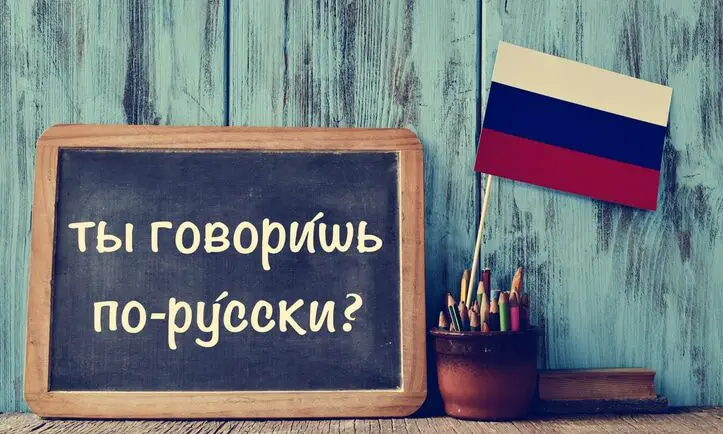
Advanced Russian Language Test
SRAS has developed the test below to help you gauge your Russian language skills! Anyone interested in gaining more knowledge should check out the the resources under “language” on our main menu including especially our Resources for Students of Russian and the Russian Talking Phrasebook. You can also sign up to study Russian online or […]

Halloween as a Case Study for Cultural Understanding
Halloween is seen around the world as an American holiday. While it has gained more global popularity in recent years, it is still really only celebrated in the US, the UK, and Canada. In most other countries, including most Slavic countries, it is regarded at most as a reason to host costume parties or perhaps […]
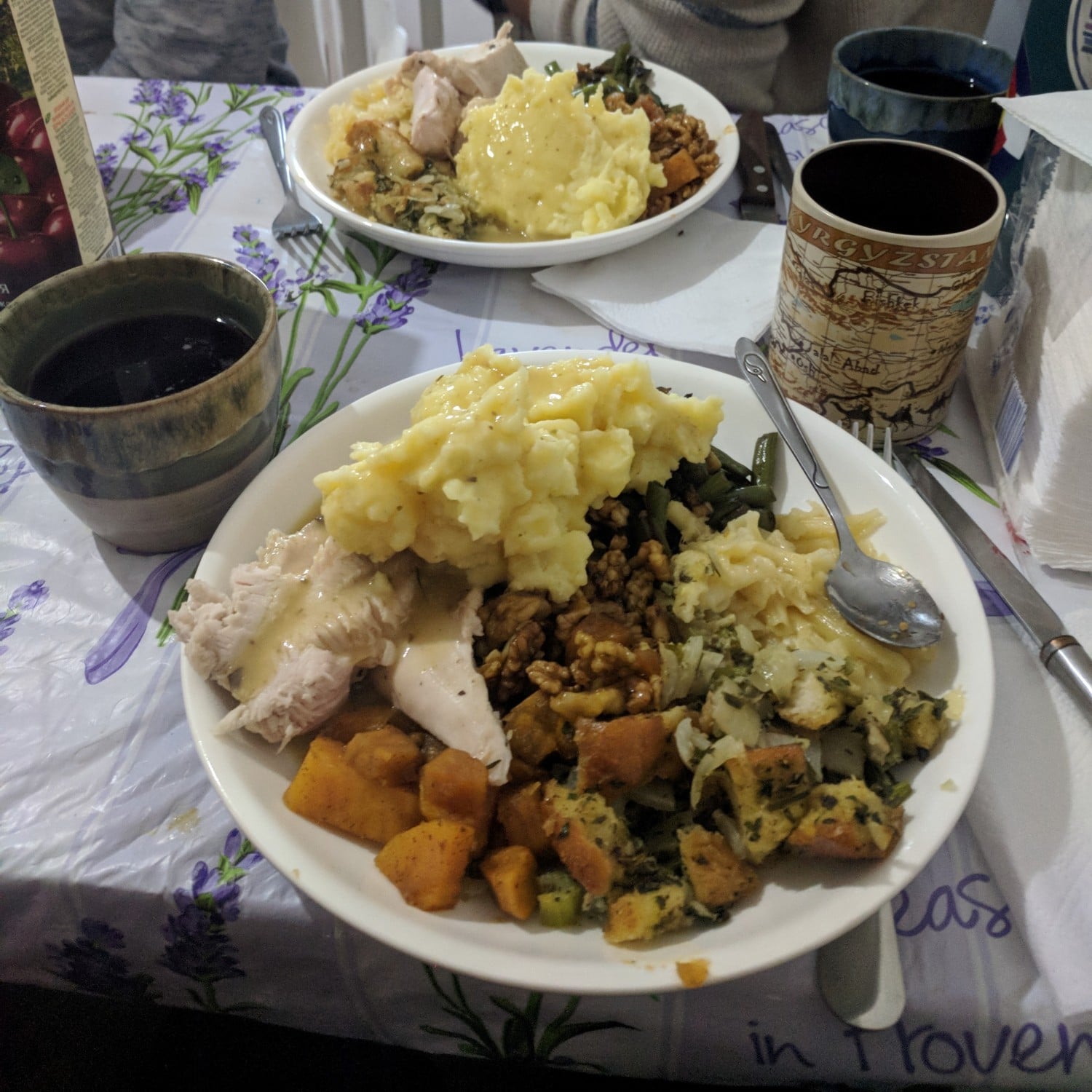
Russian MiniLessons: Thankfulness
The following bilingual Russian MiniLesson is meant to build your vocabulary by providing Russian phrases within English text. Hover over the bold Russian to reveal its English translation. This topic is doubly pertinent this month, as has just passed, but also because many are likely to be affected by the new law on NGOs. The […]

Russian MiniLessons: The Russian Bath House
The following bilingual Russian MiniLesson is meant to build your vocabulary by providing Russian phrases within English text. Hover over the bold Russian to reveal its English translation. has always played an important part in Russian culture. Since ancient times, Russians have said that . The баня was also thought in previous times to be highly […]
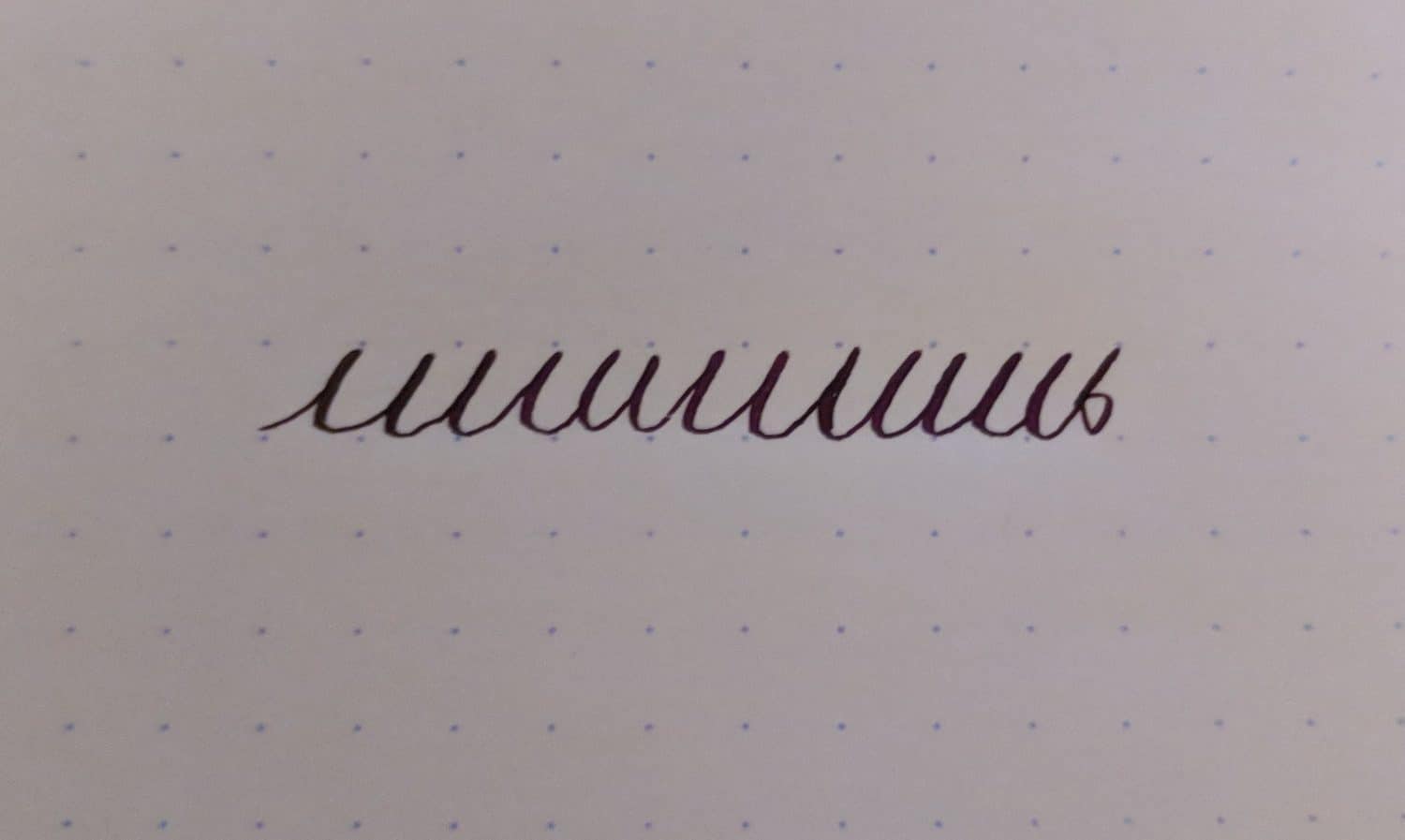
Самый лучший разговорник – The Best Phrasebook Ever
The following list of phrases are meant as educational humor. Some are just silly, some are useful, some will be understood by all, and some only by those who have spent time in Russia. Some of these have been around online as jokes for some time – others were added based on common experiences that […]

